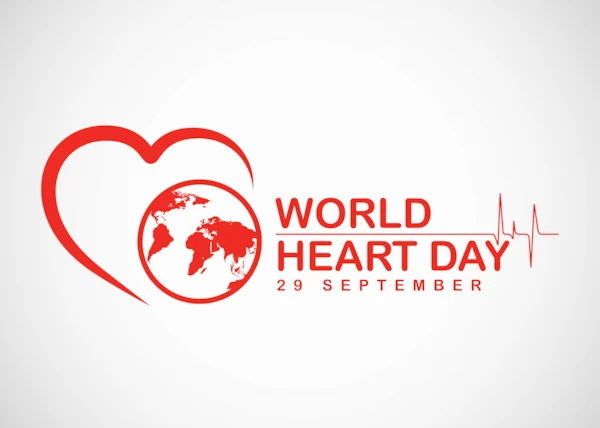All About Heart Healthy Diet
Learn how a heart-healthy diet can help prevent cardiovascular diseases. Discover essential foods, nutrients, and meal planning tips to support heart health.

Written by Dr Sonia Bhatt
Last updated on 3rd Jul, 2025
Cardiovascular diseases (CVDs), which include conditions like coronary heart disease and strokes, are a major global health issue, particularly in low- and middle-income countries. Diet plays a crucial role in both preventing and managing heart disease. Adopting healthy eating habits, focusing on foods low in salt, cholesterol, and saturated fats, can significantly lower the risk of CVD. Alongside a heart-healthy diet, regular exercise and avoiding smoking are key factors in preventing heart disease.
Even with a family history of heart disease, making lifestyle changes, especially in diet, is one of the most effective ways to maintain heart health. In this blog, we will dive into the essential components of a heart-healthy diet, their benefits, and how they can help protect and preserve your heart health.
Core Components of a Heart-Healthy Diet
The core components of a heart-healthy diet are as follows:
1. Fruits and Vegetables
Rich in essential nutrients, they support heart health and overall well-being.
Leafy Greens (e.g., spinach, kale): Help lower blood pressure.
Berries (e.g., blueberries, strawberries): Rich in anthocyanins that protect blood vessels.
Citrus Fruits (e.g., oranges, lemons): Support cholesterol management.
Packed with vitamins, minerals, and antioxidants: Essential for overall heart function.
2. Whole Grains
High in fibre and antioxidants, they help lower cholesterol and improve digestion.
Help lower LDL cholesterol and reduce cardiovascular diseases.
Help improve digestion.
High in fibre, antioxidants, and heart-friendly nutrients.
Examples: whole grain bread, whole grain pasta, oats, brown rice
3. Lean Proteins and Healthy Fats
They provide essential nutrients while maintaining healthy cholesterol levels.
Lean Meats (e.g., chicken, turkey): Offer high-quality protein with minimal saturated fat.
Plant-Based Proteins (e.g., lentils, beans): Deliver essential nutrients without added animal fats.
Healthy Fats: Supports healthy cholesterol levels and overall cardiovascular function.
Nutrients That Promote Heart Health
Certain nutrients play a crucial role in maintaining heart health. Here are some key nutrients and their benefits:
1. Omega-3 Fatty Acids
Support heart health by reducing inflammation, lowering triglycerides, and improving blood vessel function.
EPA & DHA (Marine Omega-3s): Found in fatty fish like salmon and sardines, these reduce inflammation, lower triglycerides, and improve blood vessel function.
ALA (Plant-Based Omega-3): Sourced from flaxseeds and walnuts, ALA supports heart health but is less potent than EPA and DHA.
Heart Benefits: Enhances blood vessel function, lowers inflammation, and reduces the risk of arrhythmias.
Recommended Intake: 250–500 mg of EPA/DHA daily or at least two servings of fatty fish per week.
2. Antioxidants
Antioxidants combat oxidative stress, protect blood vessels, and reduce inflammation.
Sources: Flavonoids, polyphenols, and carotenoids in fruits and vegetables enhance blood flow and help regulate blood pressure.
Key Vitamins: Vitamins C and E help reduce oxidative damage to blood vessels.
Heart Benefits: Improves circulation and reduces the risk of cardiovascular damage.
3. Fibre
Aids in cholesterol management, supports digestion, and helps prevent plaque buildup in arteries.
Soluble Fibre: Found in foods like oats and apples, it helps lower LDL cholesterol and supports blood vessel health.
Insoluble Fibre: Present in whole grains and vegetables, it aids digestion and promotes regular bowel movements.
Heart Benefits: Prevents plaque buildup in arteries and supports overall heart health.
Recommended Intake: Aim for 25+ grams of total fibre daily.
Foods to Avoid for Heart Health
To protect your heart, manage cholesterol, and reduce the risk of cardiovascular diseases, avoid the following:
Saturated and Trans Fats: These unhealthy fats contribute to plaque buildup in the arteries, increasing the risk of heart disease. Trans fats raise LDL (bad cholesterol) and lower HDL (good cholesterol), promoting atherosclerosis (narrowed arteries). Examples include fried chips, margarine, pastries (like doughnuts), fatty cuts of beef, lamb, butter, and cream.
Added Sugars and Salt: These foods are high in refined sugars, unhealthy fats, and artificial additives, which can lead to elevated blood sugar, insulin resistance, and obesity. Excess sodium causes fluid retention, increasing blood volume and blood pressure, which puts extra strain on the heart. Examples include cookies, candies, packaged cereals, sweetened beverages, salted snacks, processed meats (sausages, bacon), canned soups, and fast food.
Processed and Red Meats: They’re high in saturated fats and cholesterol, which can increase the risk of heart disease. These can contribute to high blood pressure, cholesterol imbalance, and plaque buildup in arteries. Examples include bacon, sausages, hot dogs, and fatty cuts of beef, lamb, and pork.
Heart Health and the Mediterranean Diet
The Mediterranean diet focuses on whole, plant-based foods with minimal processing. It includes fruits, vegetables, nuts, beans, whole grains (such as whole-grain pasta and bread), olive oil, red wine, and limited portions of fish, eggs, dairy, and meats.
1. Principles of the Mediterranean Diet
Follow these key principles of the Mediterranean diet to support heart health and overall well-being.
Eat fruits and vegetables daily: Packed with vitamins, minerals, fibre, and antioxidants for heart health.
Choose whole grains: Rich in nutrients and help regulate blood sugar levels.
Eat healthy fats: Olive oil, nuts, and avocados provide monounsaturated and polyunsaturated fats to improve cholesterol.
Eat fish and seafood: Salmon, tuna, and sardines are high in omega-3 fatty acids, which help reduce inflammation.
Eat legumes: Beans, lentils, and chickpeas are great sources of protein, fibre, and phytochemicals.
Limit red meat: High in saturated fat and cholesterol, which increase heart disease and cancer risks.
Drink water: Make water your primary beverage.
Limit alcohol consumption: If you drink, limit your intake to moderate levels.
2. Benefits for Heart Health
The Mediterranean Diet offers several benefits, including:
Reducing the risk of cardiovascular diseases such as heart attack and stroke.
Promoting a healthy body weight.
Supporting optimal blood sugar levels, blood pressure, and cholesterol.
Lowering the risk of metabolic syndrome.
Enhancing gut microbiota balance for better digestion.
Reducing the risk of certain cancers.
Slowing brain function declines with age.
Contributing to a longer, healthier life.
Meal Planning and Preparation Tips
Meal planning for heart health is a key strategy to make mindful food choices that support cardiovascular wellness. Here are some essential tips:
Choose Healthy Fats: Opt for heart-healthy fats found in olive oil, avocado, nuts, and fatty fish, which help lower bad cholesterol and support heart health.
Avoid Replacing Fat with Sugar or Refined Carbs: While cutting fat may seem healthy, replacing it with sugar or refined carbs can increase heart disease risk and elevate blood sugar levels.
Prioritise High-Fibre Foods: Include fibre-rich foods such as whole grains, legumes, fruits, and vegetables to help lower cholesterol, regulate blood sugar, and promote digestion.
Limit Salt and Processed Foods: Reduce sodium intake by cutting back on salt and avoiding processed foods that are high in sodium and unhealthy fats.
Cook at Home: Preparing meals at home gives you control over ingredients and portion sizes, helping you avoid excess fats, sugars, and sodium commonly found in packaged foods.
Manage Portion Sizes and Weight: Controlling portion sizes helps maintain a healthy weight, which lowers the risk of heart disease.
Lifestyle Changes to Complement a Heart-Healthy Diet
In addition to a heart-healthy diet, making lifestyle changes can further enhance cardiovascular health. Here are some key adjustments:
Regular Physical Activity: Aim for at least 150 minutes of moderate aerobic activity or 75 minutes of vigorous activity each week, along with strength training exercises twice a week. Exercise improves heart function, lowers blood pressure, and helps manage weight.
Maintain a Healthy Weight: Achieving and maintaining a healthy weight reduces the strain on your heart, lowers cholesterol levels, and improves overall health.
Quit Smoking: Smoking damages blood vessels, raises blood pressure, and increases the risk of heart disease. Quitting smoking improves circulation and reduces the risk of cardiovascular problems.
Limit Alcohol Consumption: If you drink alcohol, do so in moderation. Excessive alcohol can raise blood pressure and contribute to heart disease.
Manage Stress: Chronic stress can negatively affect heart health. Practice stress-reducing techniques such as deep breathing, meditation, yoga, or spending time outdoors.
Get Enough Sleep: Aim for 7-8 hours of quality sleep each night. Poor sleep is linked to higher risks of hypertension, obesity, and heart disease.
Regular Health Check-ups: Monitor your blood pressure, cholesterol, and blood sugar levels regularly. Early detection of any issues allows for prompt action to prevent heart problems.
Conclusion
Adopting a heart-healthy diet is one of the most powerful steps you can take to reduce the risk of cardiovascular diseases, which remain the leading cause of death worldwide. By prioritising whole, nutrient-dense foods like whole grains, fruits, vegetables, lean proteins, and healthy fats, while limiting processed foods, excess salt, and unhealthy fats, you can significantly improve your heart health.
Consult Top Cardiologists
Consult Top Cardiologists

Dr. Amit. A. Bharadiya
Cardiologist
12 Years • MBBS, MD General Medicine, DNB Cardiology, FSCAI
Maharashtra
Surabhi Hospital, Maharashtra, Maharashtra

Dr. S B Bhattacharyya
Cardiologist
22 Years • MBBS, MD(General Medicine),DM (Cardiology)
Kolkata
Gariaheart Clinic, Kolkata
Dr. Jayarajah Mariappan
Cardiologist
45 Years • MBBS, MD(GEN MEDICINE), DM(CARDIOLOGY)
Chennai
Sooriya Hospital, Chennai

Dr. Sumanta Chatterjee
Cardiologist
12 Years • MBBS,MD General Medicine,DM Cardiology
Kolkata
HealthYou Speciality Clinic & Diagnostics., Kolkata
(25+ Patients)

Dr. M Sudhakar Rao
Cardiologist
8 Years • MBBS, MD General Medicine, DM Cardiology
Bengaluru
UMC, Kormangla, Bengaluru

